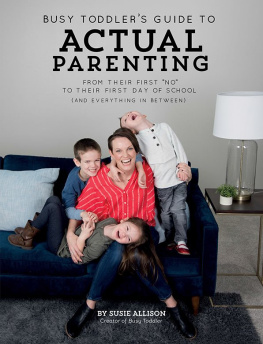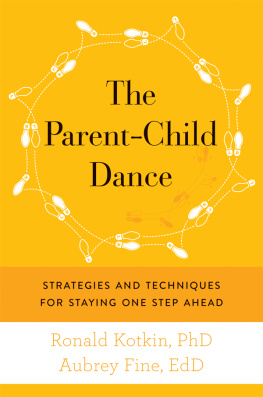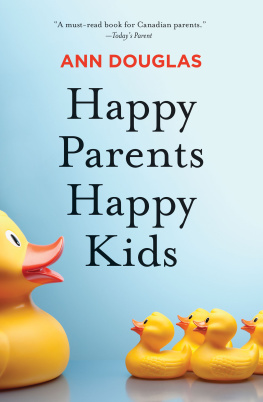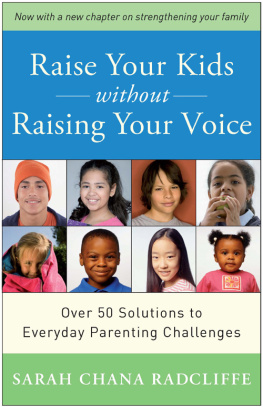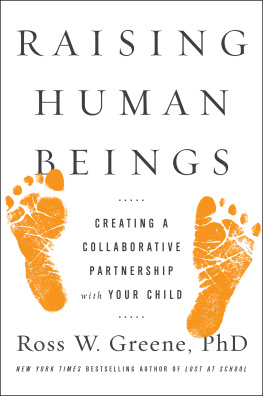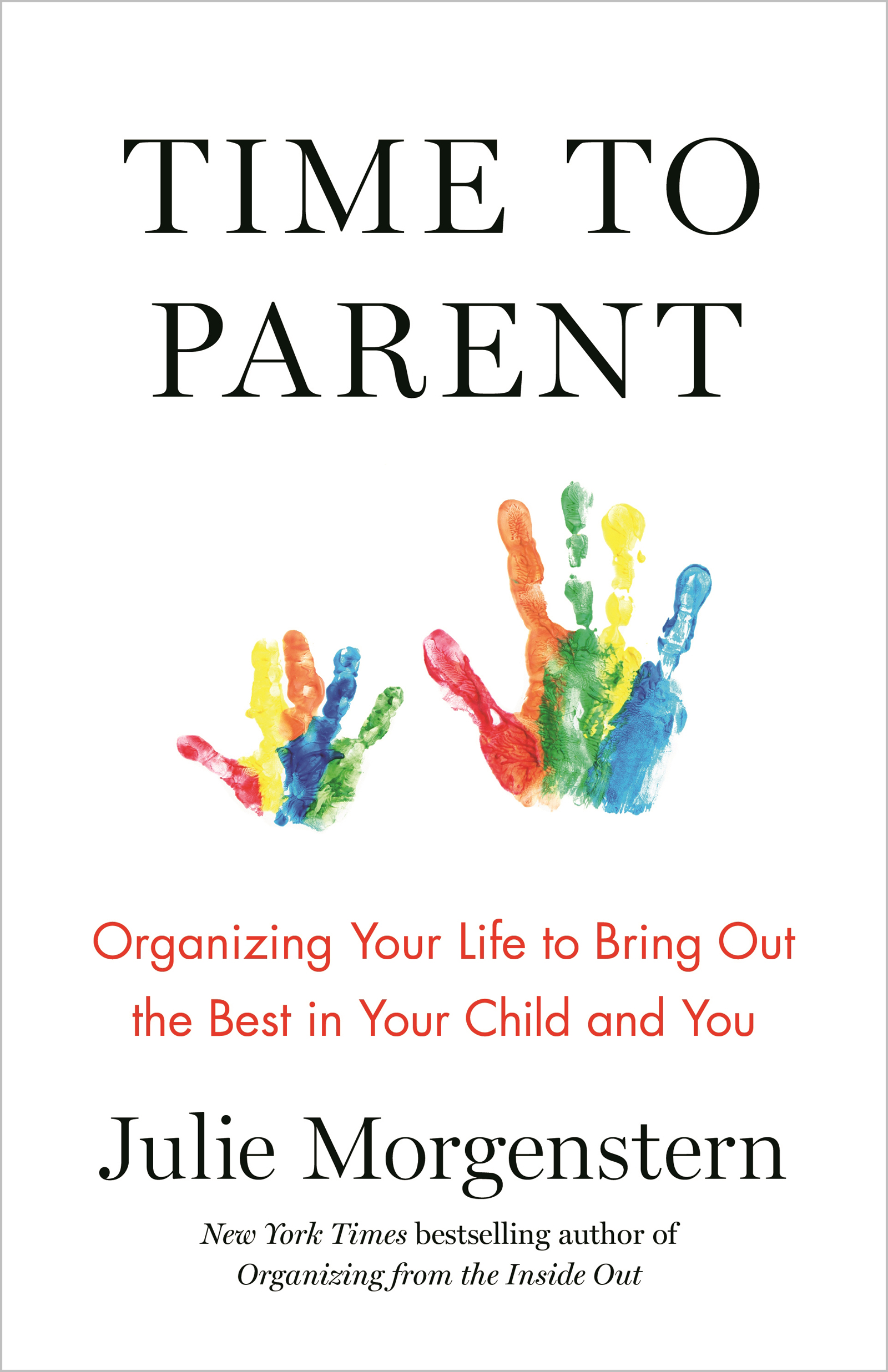Contents
Guide
Pagebreaks of the print version

The author and publisher have provided this e-book to you for your personal use only. You may not make this e-book publicly available in any way. Copyright infringement is against the law. If you believe the copy of this e-book you are reading infringes on the authors copyright, please notify the publisher at: us.macmillanusa.com/piracy.
INTRODUCTION
KIDS: AN INSTRUCTION MANUAL
When I learned I was pregnant with my daughter, I experienced an extraordinary feeling of having been given the privilege of raising a human being. But the minute Jessi arrived and I held her in my arms, I felt overwhelmed and full of doubt. This precious, tiny, helpless human being, full of promise and potential, was completely dependent on meand I had no idea what I was doing. I was a pretty disorganized person, barely managing my own life. How on earth would I handle the huge range of responsibilities that came with being a parent? How would I give my child everything she needed in order to grow up happy, healthy, successful, and confident? How would I help her reach her full potential?
In short, like many parents, I wondered, how the heck do I do this job? In fact, what even is this job?
Wherever I sought answers to this dilemma (books, doctors, other parents), the advice I got felt like vague platitudes that were too general to be useful, reassuring, or practical: just do your best, dont try to be Supermom, or, my least favorite, you are the expert on your own child. I was incredulous: how could I possibly be an expert on child rearing when I had never done it before, and each day brought a different challenge for which I had no skills or training?
For the first three years of Jessis life, I was a (mostly) stay-at-home mom who did a little bit of work for a few theater companies, usually with Jessi in tow. I directed plays with her on my hip and read and evaluated new script submissions from home, going in for occasional meetings. When Jessi was three, I got divorced and a lot changed. Overnight, I became the sole breadwinner. I began my own business so I could work from home and save on child-care costs. Jessi started schoolfirst half days, then full days. I worked hard to put food on the table and pay the rent, run a household, stay on top of laundry and bills, and be present for my daughter.
I was motivated to give Jessi the attention Id craved as a child, but without role models (my parents were well intentioned but otherwise distracted), I didnt know how to do it. I felt lost. I wanted to be present, but I found it difficult to slow down to Jessis pace when she was small. She wanted to pick up pebbles and ask about the color of the sky on the way to school each morning, while I felt pressured to keep things moving efficiently and fast, my to-do list screaming in my head. I also struggled to take care of my own needs because I was anxious about diverting any energy away from her. Case in point: I actually felt guilty leaving Jessi safely in her playpen for ten minutes while I went to take a shower, for fear shed feel abandoned or neglected. Instead, Id plunk the infant seat on the floor of the bathroom near the tub and take the worlds fastest shower, talking to her the whole time.
I longed for instructive and concrete advice. Would someone please just hand me a job description? A manual? I didnt understand why time-management brochures werent provided in the waiting rooms of my ob-gyns and pediatricians offices, or as part of the packet the hospital sent home to accompany my snugly swaddled newborn. Why werent they available in generous supply in the office of every school, from nursery through high school?
I wanted a practical guide that would tell me how to prioritize and divvy up my limited hours and help me navigate the time and energy traps that come with the territory of being a parent. I needed a way of understanding, and framing, the joba way of visualizing what I needed to do and how I might course correct when I got off track or overwhelmed. I wanted a deep and caring connection with my kid that didnt necessitate abandoning my own well-being. If I failed to be perfect, would Jessi be damaged for life? What did good enough look like? What kind of self-assessment would tell me if I was doing a good job or where I might improve?
This book is my best shot at the guide I so craved all those years ago. It aims to help parents find the quality time they crave with their kids, with their partners, with their friends, and on their own, by offering a simple way of organizing the job. This book is not an amorphous laundry list of tips and tricks or an insurmountable mountain for parents to climb. What I am offering is a concrete way to conceptualize and put boundaries around what the parenting job is and how it can be done well.
As a professional organizer and time-management coach, Ive worked with parents around the globe for more than twenty-six years. Its been moving to see that wherever my work takes me, the goal of all parents is to be there for their kids. No matter the family structure, age, income, or background, parents come to me craving one thing above all: time to relax and be present with their children, without neglecting the other essential parts of their lives.
Parents want to do right by their kids but universally suffer from the feeling of time scarcity. Many worry they spend too much time working and not enough time at home. Some feel like they are devoting all of their time to the parenting role, leaving no energy for their marriage. Still others suffer from investing all theyve got on taking care of others and not enough on their own health and self-care.
Ive always seen my role as taming the chaos in my clients lives so they are free to make their unique contribution. And I believe there is no more powerful place to make ones unique contribution than in raising another human being.
The responsibilities of parenthood can feel simultaneously ambiguous and infinite, where it is hard to see the edges in order to manage the job with confidence. Lack of clarity often leads to time clutter, with too many precious hours focused on low-value activities, like worrying about whether you are spending your time well. Organizing the job and approaching it systematically will allow you to take control and make confident time choices, while being fully present in each thing you do.
Designed for parents with children of all ages and at all stages, from birth through high school and beyond, this book will provide you with a logical way to think about your job as a parentand the time balance you have to achieve. It will guide you when you get off track, give you tips to shore up your weaknesses, and provide concrete, practical strategies (backed up by scientific evidence) to develop new skills.
It is designed to help you relax, feel confident, and make the job of parenting your own, while harnessing your strengths and fortifying your weaknesses.
As a parent, you will be able to create the space for quality time with your kids and yourself, and to see the edges of the deeply complex and complicated job you have taken on.
Its the manual I wish Id had.
HOW TO USE THIS BOOK
This book is written to be by your side from the birth of your first child until the launch of your last, throughout the entire bumpy ride of the parenting years. Thats because the challenges of and questions about how to divide your time never go awaythey just change.


